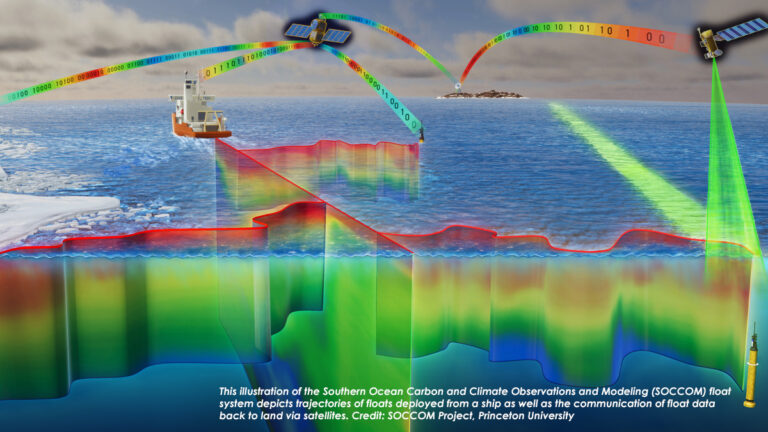On 17 March 2022, the EOS science news magazine of the American Geophysical Union (AGU) published a new article “A Global Ocean Biogeochemical Observatory Becomes a Reality”. Co-authored by A. Fassbender (NOAA), O. Schofield (Rutgers University), and M. Hood and K. Hill, the European and UK coordinators of the G7 FSOI coordination centre respectively, the article strongly supports the need to extend Argo’s capabilities, particularly in ocean biochemistry monitoring, to urgently address current gaps in global ocean observing.
Beyond serving needs for basic research and science advances, real-time observations from Biogeochemical-Argo will also inform a diverse range of stakeholders and facilitate solutions for sustainable ocean management.
Launched in 1999, Argo consists of almost 3,900 ocean profiling floats today with almost 10% equipped with biogeochemical (BGC) sensors, transforming our ability to observe the oceans. With the successful Argo network of seafaring temperature and salinity sensors, the G7 FSOI has identified the implementation of the full BGC-Argo array by 2030 as a top priority.
The critical need to reduce uncertainties in estimates of ocean carbon and nutrient cycling, oxygen decline, and ecosystem health, together with the success of the Argo array, inspired the ocean sciences community to extend the array’s capabilities by expanding the number and types of sensors carried by profiling floats.
In May 2021, the FSOI Coordination Centre organised the virtual Global BGC-Argo Fleet: Knowledge to Action Workshop to engage potentially interested parties in envisioning societally beneficial applications of BGC-Argo in fisheries management, ocean carbon budget verification, and environmental forecasting and modelling. The FSOI established a Resource Strategy Group for BGC-Argo building on several recommendations from the workshop to support the development and implementation of a sustained global BGC-Argo array by encouraging and facilitating G7 commitment for the implementation of the full-1000 float Array by 2030.
To read the full article, click here.
Citation: Schofield, O., A. Fassbender, M. Hood, K. Hill, and K. Johnson (2022), A global ocean biogeochemical observatory becomes a reality, Eos, 103, https://doi.org/10.1029/2022EO220149. Published on 17 March 2022.
